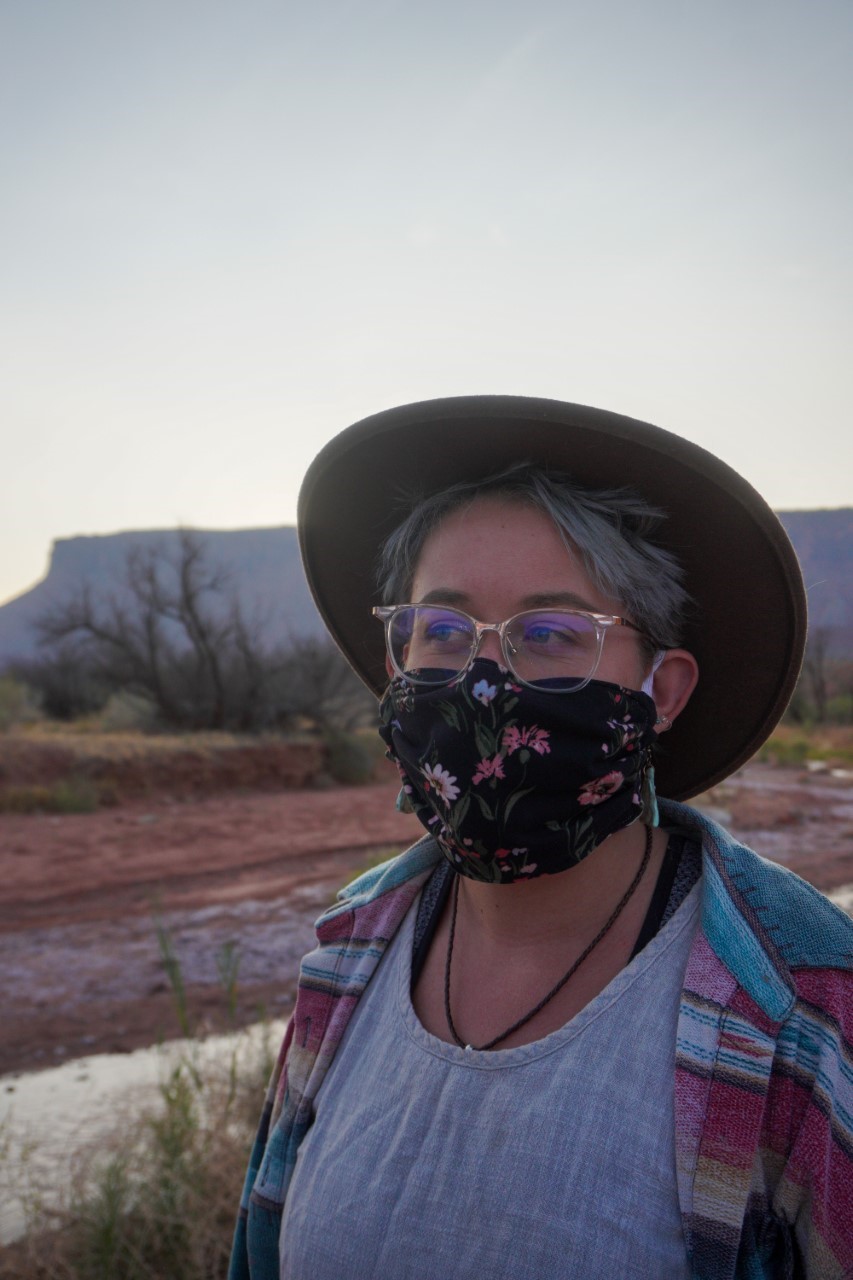Meeting Clients Where They Are—On the Streets
 Like the beginning of any new job, most practicum placements begin with an adjustment
period. Learning the flow at a new work environment with new people takes time.
Fortunately for first-year MSW student Dani Nives, she had already worked at The Road
Home—a nonprofit social service agency in Salt Lake that assists individuals and families
experiencing homelessness—for several years. Previously a case manager, her practicum
enabled her to pivot and start a new program.
Like the beginning of any new job, most practicum placements begin with an adjustment
period. Learning the flow at a new work environment with new people takes time.
Fortunately for first-year MSW student Dani Nives, she had already worked at The Road
Home—a nonprofit social service agency in Salt Lake that assists individuals and families
experiencing homelessness—for several years. Previously a case manager, her practicum
enabled her to pivot and start a new program.
Yes, you read that right. An entirely new program.
Both internally and externally, there was recognition of the need for a street outreach program. Even before the pandemic, Dani understood the need and had advocated for a street outreach team. “There are a lot of clients we don’t see for months a time,” said Dani. “They’ll choose to camp for the summer when the weather turns, and then when they come back in the fall, we have to start all over again. We needed a way to offer more consistent support.”
Once the pandemic hit, several police departments in the Salt Lake Valley reported increases in unsheltered encampments. In addition to the usual fears related to shelters, there was now the additional worry of COVID safety. When CARES Act funding came through, it made sense to direct funding to meet clients where they were—on the streets.
The Road Home hadn’t done Housing First street outreach before, so Dani started from the ground up—writing policy and procedure that met both the administrative guidelines of the grant and the needs of the clients, implementing policy, running the program, and now supervising case managers within the program. Within this Housing First institution, the goal of the case manager—whether on the street or in a center—is to help clients overcome whatever barriers they’re facing in acquiring and maintaining housing. Case managers approach their clients with a progressive engagement mindset, and with support tailored to the individual needs of each client. This might include anything from helping with paperwork to sharing bus tokens to attending appointments together with clients. It’s about the particular support that each unique client needs in order to connect to shelter. Dani’s team works with individuals and families experiencing unsheltered homelessness and provides a warm hand off if one of their clients decides they would like to access shelter.
Dani’s supervisor, Sarah Strang (a 2015 MSW graduate), was effusive in her praise of all the work Dani did to develop and implement the program that now brings these skills to clients living outside the center walls. “This was a heavy lift for Dani and she did such a great job. She already had great clinical skills, but it’s been really fantastic to see her develop those advocacy and policy skills as well.”
Dani is passionate about advocating for those who aren’t normally advocated for in society, which has made this work particularly rewarding for her. “In previous positions I had, I could see the beautiful work getting done when someone did have an advocate. I wanted to move in to a position where I could help others by being that voice.” Dani found that niche working with individuals and families who are experiencing unsheltered homelessness—populations notoriously left out of advocacy conversations. She has especially enjoyed working with unsheltered men at The Road Home. Dani explained, “I feel like when you’re talking about the gender binary and the patriarchy there are a lot of women’s rights movements. But how many times do you hear that men don’t have a voice to be vulnerable or to speak their needs—how the patriarchy affects men as well. Society doesn’t raise men to be vulnerable or be able to ask for help.” Dani is trying to create a space for that vulnerability, to discuss it with her clients. “I see so many individuals so beaten down by the patriarchy—the ways they haven’t succeed, the way they were raised to believe they needed to be, and it really affects them mentally.”
As her supervisor, Sarah has seen Dani grow in her practicum since she began graduate school. “One of my favorite things about watching students grow through their MSW studies is that you see that lens of clinical focus really start to sharpen,” observed Sarah. “For some students, they really start to see things through a clinical lens. For Dani, she already had that clinical lens there—it has been really seeing these components sharpen and come in to focus.”
Dani, too, recognizes the boon her education has been. “Having the foundation of always using evidence-based practice and understanding why you’re doing what you’re doing has been a huge transformation for me,” said Dani. She continued, “Researching evidence-based practice has been the best thing to come from my classes. Before, I would just do whatever plan was in place. To be in the supervisor role now, and to start implementing evidence-based best practices I’ve learned from my MSW Program has been invaluable. It’s been a really humbling and beautiful experience to be able to acknowledge there’s always more learning to do and always better practice to be utilizing.”
